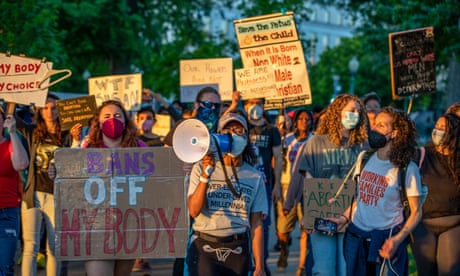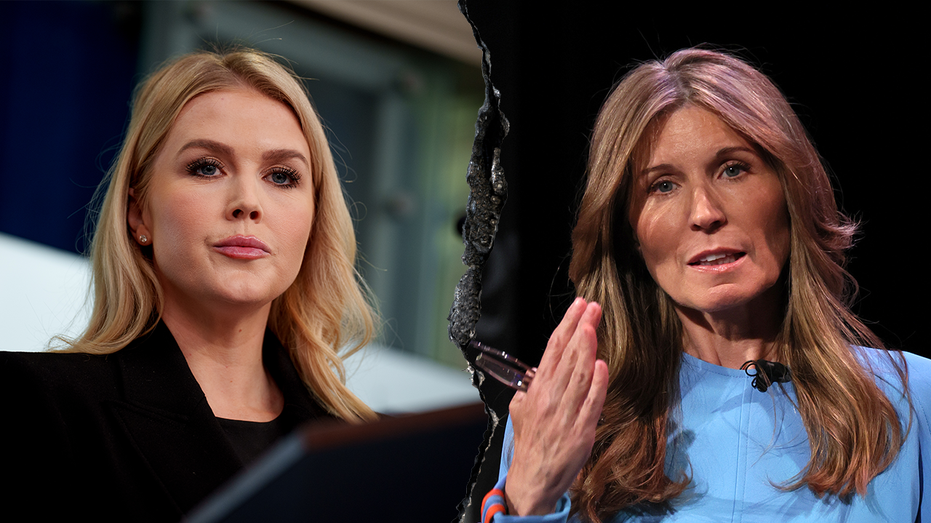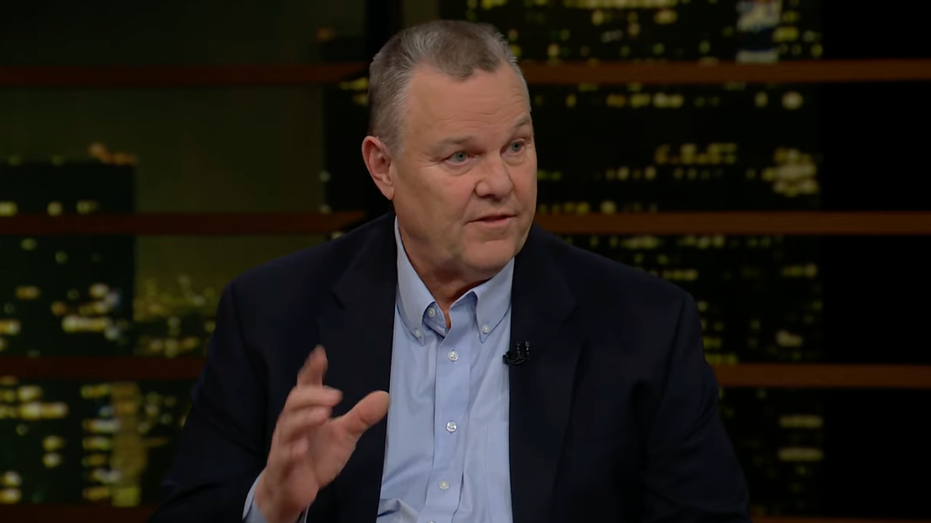- by foxnews
- 09 Mar 2025
Abortion rights: how a governor’s veto can protect women’s freedoms
Abortion rights: how a governor’s veto can protect women’s freedoms
- by theguardian
- 17 May 2022
- in news

If the US supreme court follows through with its initial decision to overturn Roe v Wade next month, 26 states are certain or likely to ban abortion. For those who want to protect abortion rights, a governor's veto pen is about to become all the more powerful.
The probable end of Roe has raised the stakes in gubernatorial races across the country, particularly in states with Republican-led legislatures that would probably move to ban abortion unless a Democratic governor steps in.
Democratic gubernatorial candidates are now stressing the urgency of the moment to voters, portraying themselves as the last line of defense against an abortion ban in their states.
Four states with Republican-controlled legislatures and Democratic governors - Kansas, Michigan, Pennsylvania and Wisconsin - are holding gubernatorial races in November. Democrats are also paying close attention to gubernatorial elections in battleground states where Republicans currently control both the governor's mansion and the state legislature, such as Georgia and Arizona.
If the supreme court overturns Roe and Republicans have full control of the state government, abortion bans in those states will become all but certain. Some of the toss-up states holding gubernatorial races this year - including Michigan, Wisconsin and Arizona - already have abortion bans on the books that predate Roe, and Republicans have called for their enforcement if the court reverses the landmark case.
In Kansas and Pennsylvania, the sitting Democratic governors have both previously vetoed bills restricting abortion access, and those proposals would probably be enacted if a Republican took control.
"The leaked draft opinion overturning Roe v Wade makes one thing clear - the future of reproductive rights will be defined at the state level," said Christina Amestoy, senior communications advisor for the Democratic Governors Association. "Who sits in the governor's office will determine a woman's ability to access abortion."
Since the court's draft opinion was made public, Republican gubernatorial candidates' views on abortion have come under renewed scrutiny. In Pennsylvania, all four leading Republican gubernatorial candidates have indicated they would support some form of an abortion ban. State senator Doug Mastriano, who now leads in polls ahead of the Tuesday primary, said at a recent debate that he would oppose any exceptions to an abortion ban, such as for rape, incest or the safety of the mother.
Josh Shapiro, the presumptive Democratic gubernatorial nominee in Pennsylvania, has already cut an attack ad warning that Mastriano "wants to ban abortion" if elected.
"Every one of our opponents has made it clear: they would sign a bill banning abortion and taking away a woman's right to choose," said Shapiro's spokesperson, Manuel Bonder. "With DC failing to protect these rights, Josh Shapiro will stand up and fight to ensure Pennsylvania remains a place where everyone has the freedom to start a family how and when they want to."
Katie Hobbs, a Democrat running for governor in Arizona, has similarly promised that she will use her veto pen to block abortion restrictions, while also calling for a repeal of the state's 1901 law that criminalizes administering the procedure.
"I will do everything in my power to protect Arizonans' fundamental freedoms and access to reproductive healthcare, and use my veto power to strike down anti-abortion measures that come across my desk," Hobbs said after the draft opinion leaked.
And Democratic gubernatorial candidates are not simply waiting until election day to take action for the potential end of Roe. Stacey Abrams, the voting rights leader running for governor of Georgia, temporarily paused fundraising for her campaign earlier this month to instead raise money for abortion rights groups.
In Michigan, the Democratic governor, Gretchen Whitmer, has filed a lawsuit to block implementation of a 1931 abortion ban that does not allow for exceptions related to rape or incest. Whitmer has also asked the Michigan supreme court to recognize the right to abortion access under the state's constitution.
In her New York Times op-ed published last week, Whitmer warned that it would be nearly impossible to repeal the 1931 ban with Republicans controlling the Michigan legislature, and she underscored the need for Democrats to use every tool at their disposal to protect abortion rights.
"We can all sense the hopelessness and despair that tens of millions of American women - our neighbors, family members and friends - are feeling," Whitmer said. "But despair is a choice, and pessimism is a luxury. We must take unprecedented steps to protect the right to choose."
The likely end of Roe has also started to affect some gubernatorial primaries, as candidates use their views on abortion to distinguish themselves from their opponents. David Perdue, the Trump-backed gubernatorial candidate in Georgia, has called on the sitting Republican governor, Brian Kemp, to call the state legislature back for an emergency session to pass an abortion ban if Roe is overturned.
"Georgia voters deserve to know where their governor stands on this issue," Perdue said after the draft opinion leaked. "You are either going to fight for the sanctity of life or you're not."
But for the most part, Republicans have tried to downplay how much the end of Roe would affect the midterm elections. "Reminder for those wondering about the politics of the leaked Scotus opinion, Terry McAuliffe spent all fall trying to make abortion THE central issue in the Virginia gov race," Jesse Hunt, communications director for the Republican Governors Association, said earlier this month. "He lost by 2% in a state Biden won by 10%."
Polls show that the probable end of Roe has certainly caught voters' attention, although many Americans remain more focused on economic issues like record-high inflation.
A survey released by Monmouth University last week showed 26% of Americans named economic policy as their most significant concern for the midterm elections, making it the most common response. But abortion was cited almost as often, with 25% of Americans selecting it as their top priority when appraising candidates.
Amestoy argued Democratic gubernatorial candidates do not have to choose between campaigning on their plan to combat inflation and their promise to protect abortion rights. Instead, she encouraged candidates to use their opponents' views on abortion to paint Republicans as out of touch with the needs of average Americans.
"Republicans are campaigning on extreme, fringe agendas, like banning abortion, rather than on delivering for families," Amestoy said. "It's a stark contrast Democratic governors and candidates can draw while they work to address the concerns voters care most about."
Drawing that contrast is even more important for Democratic gubernatorial candidates with federal abortion legislation stalled in Congress. Last Wednesday, Senate Republicans and Democrat Joe Manchin again blocked a bill that would have codified Roe and secured abortion rights at the national level. If the supreme court does indeed overturn Roe next month without other federal protections in place, individual states' policies will soon dictate if and how Americans can access abortion.
"The reproductive freedoms of millions of Americans are on the line," Amestoy said. "Electing Democratic governors is our best and perhaps only hope of protecting them."
- by foxnews
- descember 09, 2016
'Speaker scum' on flights sparks debate among travelers: 'This is getting out of hand'
A traveler asked social media users to weigh in on flyers who play audio aloud on their devices and don't use headphones.
read more


